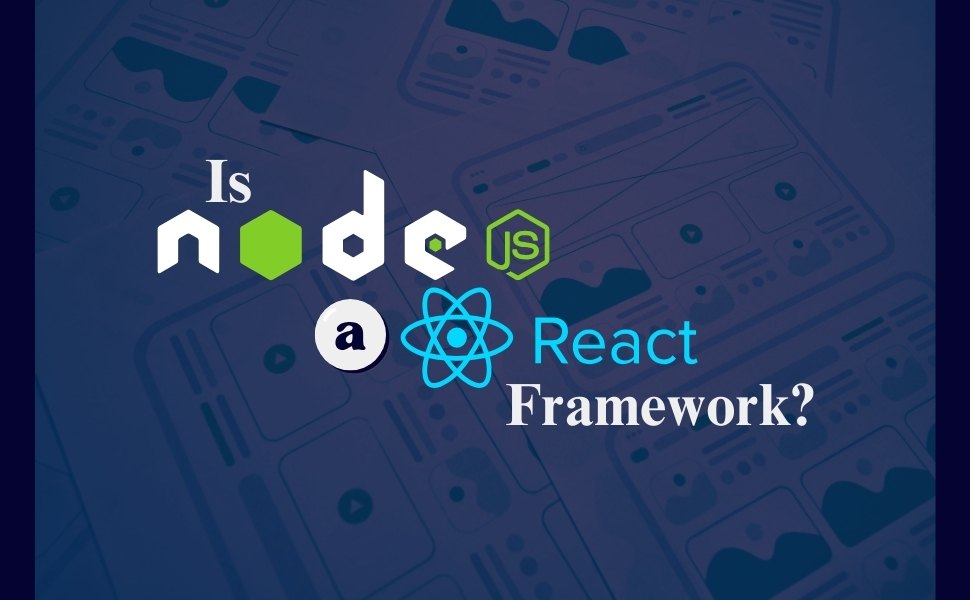The real estate market is known for being complicated, expensive, and lacking transparency. But now, thanks to Web3 technology, these problems are solved in new and exciting ways. What is the Web3 real estate platform? It’s a revolutionary system that uses blockchain and smart contracts to streamline transactions, reduce costs, and increase transparency.
Web3 technology uses blockchain, decentralization, and smart contracts to make property transactions easier and safer. This new approach helps to eliminate many of the traditional hassles and uncertainties that come with buying and selling real estate.
In this article, we will briefly overview the real estate market and introduce Web3 technology. We will explain the concept and benefits of Web3 real estate platforms, showing how they make property transactions more transparent, secure, and accessible for everyone.
Overview Of Web3 Technology
Web3 technology is the next evolution of the internet, bringing significant changes in how we interact online.
Definition of Web3
Web3 is a new kind of internet that operates in a decentralized way, meaning it does not rely on central authorities like big companies. Instead, it uses blockchain technology to keep things transparent and secure.
Key components of Web3 include blockchain, decentralization, and smart contracts. Let’s break these down:
- Blockchain is like a digital ledger that records transactions or data across many computers. This makes it very secure because once something is recorded, it cannot be easily changed.
- Decentralization means that control is spread out across many participants rather than being held by a single entity. This removes the need for middlemen, making processes more direct and efficient.
- Smart contracts are self-executing contracts where the terms are written directly into code. They automatically enforce and execute the terms of an agreement when certain conditions are met, without needing a third party.
How Web3 differs from Web2
In Web2, the internet we use today, data and services are controlled by central servers and big companies. These companies have control over the data we create and use. In contrast, Web3 gives control back to the users. It allows users to own and control their data and digital assets, making online interactions more secure and personalized.
In summary, Web3 technology creates a more secure, transparent, and user-controlled internet. It uses blockchain, decentralization, and smart contracts to achieve this, making it a significant upgrade from the current Web2.
What Is The Web3 Real Estate Platform?
Web3 in real estate refers to the transformative integration of blockchain technology and decentralized networks into the traditional real estate industry. Unlike conventional methods that rely on intermediaries and extensive paperwork, Web3 enables a more transparent, secure, and efficient way of conducting property transactions through direct peer-to-peer interactions on decentralized platforms.
Blockchain technology ensures that all transaction records are immutable and verifiable, creating a secure and transparent ledger of ownership. Smart contracts automate key processes such as escrow and property transfers, reducing costs and speeding up transactions. This innovation significantly enhances the efficiency and reliability of real estate transactions.
Furthermore, tokenization divides properties into tradable digital assets, enhancing liquidity and accessibility for a wider range of investors. By streamlining processes, increasing trust, and broadening market participation, Web3 has the potential to revolutionize how real estate is bought, sold, and managed.
Overall, Web3 makes the real estate industry more efficient, secure, and accessible. This new approach to real estate transactions stands to benefit both investors and property owners, creating a more dynamic and inclusive market.
Related article- What is Web3 Applications?
How does Web3 transform the Real Estate Industry?
Web3 is transforming the real estate industry by leveraging blockchain technology, decentralization, and smart contracts to enhance transparency, security, and efficiency in property transactions. Unlike traditional real estate processes, which involve multiple intermediaries and paperwork, Web3 enables direct peer-to-peer interactions through decentralized platforms, reducing costs and speeding up transactions.
Blockchain ensures that all transaction records are immutable and verifiable, providing a secure and transparent ledger of ownership. Smart contracts automate key processes, such as escrow and property transfers, ensuring transactions are executed accurately and without manual intervention. This reduces the risk of errors and increases trust between parties involved.
Additionally, tokenization allows for fractional ownership of real estate assets, democratizing investment opportunities and increasing liquidity in the market. Web3 applications like NFTs, cryptocurrencies, and the metaverse streamline the real estate workflow, further improving transparency and trust. The readily accessible and immutable nature of blockchain enables users to verify asset ownership easily.
How Web3 Real Estate Platforms Work
Web3 real estate platforms make buying and selling property easier and more efficient. They use blockchain technology, which is a secure and transparent way to keep records. Here’s how it works:
- Buying and Selling Properties: On a Web3 platform, you can buy and sell properties directly with other users. There are no middlemen, like real estate agents, which saves time and money.
- Smart Contracts: These are automated contracts that run on the blockchain. They ensure that when all the conditions of a deal are met, the transaction happens automatically. This means faster and more reliable transactions without paperwork.
- Tokenization: This means turning real estate properties into digital tokens. You can own a small part of a property by buying these tokens. This makes it easier to invest in real estate and increases liquidity, meaning you can buy and sell your shares more easily.
Overall, Web3 real estate platforms use advanced technology to make property transactions more transparent, secure, and efficient.
Web3 empowers users to manage and own their data, optimizing the real estate industry beyond its current limits. This decentralized approach reduces reliance on intermediaries, saving time and costs for property traders. Overall, Web3 technology is revolutionizing real estate transactions, making the industry more accessible, efficient, and secure.
Key Features of Web3 Real Estate Platforms
Decentralization and User Control
Traditional real estate transactions often involve multiple intermediaries like brokers, agents, and banks, which can slow down the process and add extra costs. Web3 real estate platforms, however, are built on decentralized networks, eliminating the need for these middlemen. This decentralization gives users direct control over their transactions and data, making the process more streamlined and user-centric. Users can interact directly with each other on these platforms, leading to faster and more efficient transactions.
Transparency and Security
One of the main advantages of Web3 real estate platforms is the use of blockchain technology. Blockchain ensures that all transaction records are immutable and verifiable. This means that once a transaction is recorded on the blockchain, it cannot be altered or deleted, providing a transparent and secure ledger of ownership. This transparency helps build trust among users, as they can easily verify property ownership and transaction history.
Smart Contracts for Transactions
Web3 platforms use smart contracts to automate key processes in real estate transactions. Smart contracts are self-executing contracts with the terms of the agreement directly written into code. They automatically execute and enforce agreements when predefined conditions are met. This automation reduces the need for intermediaries, cutting down on costs and minimizing the risk of human error. For example, smart contracts can handle tasks such as transferring property ownership, releasing escrow funds, and ensuring compliance with legal requirements.
Tokenization of Real Estate Assets
Web3 technology enables the tokenization of real estate assets. Tokenization is the process of converting physical properties into digital tokens on a blockchain. Each token represents a share or fraction of the property. This makes it easier to buy, sell, and trade real estate assets, as transactions can be conducted digitally. Tokenization also opens up new investment opportunities, allowing smaller investors to participate in the real estate market by purchasing fractions of properties rather than whole units.
Fractional Ownership
One of the most transformative aspects of Web3 real estate platforms is the concept of fractional ownership. By tokenizing real estate assets, properties can be divided into smaller, more affordable portions. This allows more people to invest in real estate by purchasing small fractions of a property, democratizing access to the market. Fractional ownership increases liquidity, as these smaller portions can be easily traded on the platform. It also allows investors to diversify their portfolios by investing in multiple properties rather than being limited to a single large investment.
In summary, Web3 real estate platforms leverage decentralization, blockchain technology, smart contracts, tokenization, and fractional ownership to create a more efficient, secure, and inclusive real estate market. These features not only streamline transactions and reduce costs but also open up new investment opportunities for a broader range of people.
Benefits of Web3 in Real Estate
Web3 technology is changing the real estate industry in many ways. It uses blockchain, smart contracts, and tokenization to make buying and selling property easier and safer. Here are some of the key benefits:
Transparency and Security
Web3 makes real estate transactions more transparent and secure. Blockchain technology stores property records and transaction histories in a decentralized ledger, which means no one can tamper with the information. This reduces the risk of fraud and ensures that all parties have access to accurate information.
Efficiency and Automation
Web3 uses smart contracts to automate real estate processes. Smart contracts are self-executing contracts with the terms written into code. They handle tasks like property transfers, rental agreements, and lease renewals without needing intermediaries. This speeds up transactions and cuts down on administrative costs.
Reduced Intermediaries
Traditional real estate deals often involve many intermediaries, such as real estate agents and brokers. Web3 reduces the need for these middlemen, which saves money for both buyers and sellers. Fewer intermediaries also mean fewer delays in the transaction process.
Global Accessibility
Web3 makes real estate investment more accessible to people all over the world. With fractional ownership and tokenization, individuals can invest in portions of a property. This lowers the barriers to entry and opens up investment opportunities to a broader range of people.
Enhanced Liquidity
Tokenizing real estate assets makes them more liquid. Traditional real estate investments can tie up capital for long periods, but tokenized assets can be traded on secondary markets. This makes it easier for investors to buy and sell their ownership stakes.
Cross-Border Transactions
Web3 simplifies international real estate transactions. Smart contracts can handle currency conversions, verify ownership, and ensure compliance with local regulations. This makes it easier for people from different countries to invest in real estate worldwide.
In summary, Web3 technology brings many benefits to the real estate industry. It makes transactions more transparent, efficient, and accessible. By reducing intermediaries and enabling global transactions, Web3 is revolutionizing the way real estate is bought, sold, and managed. As Web3 continues to develop, its impact on the real estate market will only grow, making it a safer and more efficient space for everyone.
What is Web3 in real life example?
Web3 in real estate uses new technology to make buying and selling property easier and safer. Unlike traditional real estate, which involves lots of paperwork and middlemen, Web3 allows people to deal directly with each other on decentralized platforms.
With Web3, all transactions are recorded on a blockchain, which is a secure and transparent digital ledger. This means ownership records can’t be changed or tampered with. Smart contracts, which are automated agreements written in code, handle important tasks like holding money in escrow and transferring property ownership. This reduces costs and speeds up the process.
Additionally, Web3 allows properties to be split into smaller digital shares, called tokens, that can be bought and sold easily. This makes it possible for more people to invest in real estate. Overall, Web3 makes real estate transactions more efficient, secure, and accessible.
Future of Web3 Real Estate Platforms
Predictions for the Growth of Web3 in Real Estate
The future of Web3 real estate platforms looks promising as they are predicted to revolutionize the industry. As blockchain technology becomes more widely accepted, the adoption of Web3 platforms is expected to grow exponentially. This shift will enable more transparent, efficient, and secure real estate transactions, attracting a larger number of users and investors.
Potential Technological Advancements:
Technological advancements such as improved blockchain scalability enhanced smart contracts, and more sophisticated tokenization methods will further boost the capabilities of Web3 real estate platforms. These innovations will enable seamless integration with other technologies like artificial intelligence and the Internet of Things (IoT), offering even more robust and efficient property management solutions.
Long-term Benefits for the Real Estate Market:
The long-term benefits of Web3 real estate platforms include increased market transparency, reduced transaction costs, and greater accessibility for a wider range of investors. By eliminating intermediaries and automating processes, these platforms will make real estate transactions faster and more cost-effective. Additionally, the democratization of property investment through tokenization and fractional ownership will provide more opportunities for individuals to participate in the real estate market.
What Are the Costs Associated with Using a Web3 Real Estate Platform
While Web3 real estate platforms offer numerous advantages, there are also associated costs. These include transaction fees for blockchain processing, costs for developing and maintaining smart contracts, and potential cybersecurity expenses to safeguard the platform. However, these costs are generally outweighed by the long-term savings from reduced reliance on intermediaries and increased efficiency in property transactions.
In summary, the future of Web3 real estate platforms is bright, with significant growth anticipated due to technological advancements and the numerous long-term benefits they offer. Despite some associated costs, the overall efficiency, transparency, and accessibility they bring to the real estate market make them a transformative force in the industry.
Final Thought
The Web3 real estate platform is a new technology that is changing how we buy, sell, and manage properties. It uses blockchain, a secure online ledger, to keep records. Unlike traditional real estate, which involves many middlemen and lots of paperwork, Web3 allows direct transactions between buyers and sellers. This makes the process faster, cheaper, and more transparent. Smart contracts automate important steps like transferring ownership, reducing errors, and saving time. With tokenization, you can own a small part of a property, making real estate investment accessible to more people. Overall, Web3 makes real estate transactions more efficient, secure, and fair.








